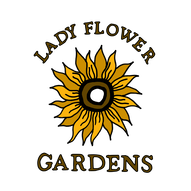|
I paid my last visit of the season to New Jubilee Forest on Saturday, 16 September. Fall colours were deepening, and my feet made a distinct crunch as I walked the pathways. Shortly upon entering the forest I heard wax wing trilling, and wondered if they were early winter Bohemians or the last of the summer Cedars - more likely the latter, but I didn’t catch a glimpse of one. A little later, I came across a flock of at least a dozen robins - it was heartening to see them, as there haven’t been too many in my neighbourhood recently. They scattered and gave their piping alarm call and tail pumping as I approached. My route took me all around the forest today - north through the main path to the river, east along the river, down the path on the east side to the clearing, and then returning west along the south edge of the forest - to touch base with all of the places I have come to know. Along the way, I spent some time sitting in a new spot - an open spruce stand within a predominantly maple and poplar section of the forest. I had the opportunity to watch two wasps while there. One was a little larger with a red abdomen, and landed on a small maple sapling. The other was smaller with a black abdomen, and landed on a smaller plant - I’ve forgotten who exactly, but I think it was an aster. I’ve learned to recognize the wasps by the way their antennae are vibrating as they walk along the edges of plants. I suspect they were looking for places to lay eggs, and I wonder if some kind of gall will appear on the plants they landed on. With long patient observation over many years in one place, one might learn firsthand which wasps produce which galls on which plants. My photos today show some fall colours, and some familiar plants. Thank you dear readers for following me this summer. I hope you were inspired to take a closer look every once in a while at what’s happening in your own backyard, front yard, park, garden, or wherever you visit! I look forward to returning to New Jubilee next summer.
0 Comments
I came prepared with long sleeves this Saturday afternoon, and found there were much fewer mosquitos this week than last week - though there were still quite a few nearer the river, so I was glad I was prepared. Signs of autumn are accumulating incrementally. Chokecherries have turned red, and many sarsaparilla leaves have dropped. I paid attention to spiders’ webs today, and took many photos of places where they were, although the camera didn’t necessarily capture the webs themselves. Orb webs in particular tend not to show up (orb webs are the classic webs with radial lines, and then a spiral crossing them). Funnel webs have shown up and were quite numerous in some places, and I saw a few sheet webs as well. Kelly joined me for the latter part of my walk today, and introduced me to the largest tree in the forest. We saw a few cool fungi growing on stumps along the way, as well as some Lily-of-the-Valley, looking different with the dark red berries and no leaves. |
Sign up for Nathan's Guided ToursNathan BinnemaHi! My name is Nathan Binnema. My grandparents are from the Netherlands, and I have lived my whole life in the city of Edmonton, as a settler on this land that I have learned to call Amiskwaciy Waskahikan. Growing up my family attended Fellowship Christian Reformed Church, which is how I am connected with Doug Visser. Around 2012/2013 I joined the public activism to fight the rezoning of the northeast agricultural land, and was introduced to the farm and the forest. I stayed in touch, and a few years later Kelly asked me to do bookkeeping for Lady Flower Gardens. Though I haven’t pursued studies in ecology or biology professionally, I have always been a biophile, and for nearly seven years now have been with a practice called phenological engagement, which involves visiting a small area consistently throughout the year, and trying to get to know all of the living creatures who also visit there, and how they are related. Archives
September 2023
Categories |

 RSS Feed
RSS Feed